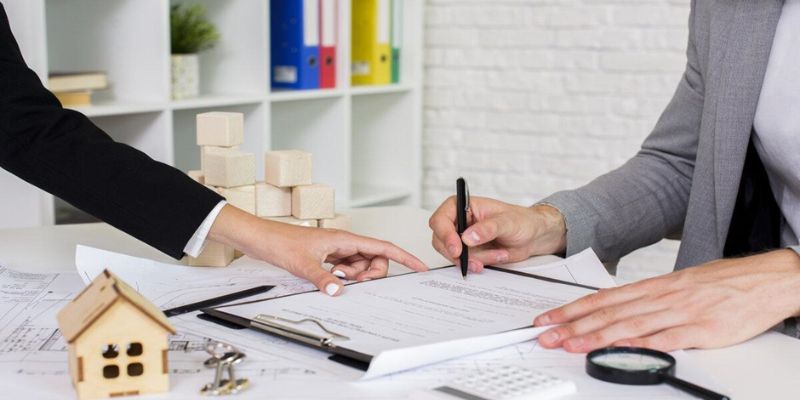Property surveyors in the UAE are integral to the real estate market, serving various stakeholders such as property developers, investors, government authorities, and individual property owners.
But what exactly does a property surveyor do?
A property surveyor in the UAE specializes in assessing, analyzing, and documenting the condition, boundaries, and characteristics of land and buildings. They employ various techniques and tools to gather accurate data, including measurements, mapping, and inspections.
Let us look at these duties and responsibilities of a property surveyor in more detail
Duties and Responsibilities of a Property Surveyor
The duties and responsibilities of a property surveyor in the UAE can vary depending on the specific role and project scope. However, here are some common duties and responsibilities performed by property surveyors in the UAE:
- Property surveyors are responsible for conducting surveys to gather accurate and detailed information about land and property. This includes measuring and mapping land boundaries, topographic features, and existing infrastructure.
- Property surveyors accurately determine property boundaries and prepare legal descriptions of land parcels. This involves conducting research, analyzing historical records, and applying surveying principles to establish precise boundary lines.
- They review land titles, deeds, and other legal documents to ensure the accuracy and validity of property ownership. They verify the legal descriptions of land parcels and cross-reference them with survey data.
- They conduct property valuations and assessments to determine the market value of land and properties. Property valuations are crucial for buyers, sellers, investors, and financial institutions in making informed decisions and negotiating fair transactions.
- Property surveyors perform due diligence investigations to identify potential issues or risks associated with a property. They assess zoning restrictions, easements, environmental concerns, and compliance with building codes and regulations.
- Property surveyors utilize advanced surveying technology, equipment, and software to enhance their efficiency and accuracy. This includes using GPS devices, laser scanners, total stations, and computer-aided design (CAD) software for data collection, analysis, and visualization. They stay updated with industry trends and technological advancements to deliver high-quality surveying services.
- Property surveyors adhere to professional standards, ethics, and regulations governing the surveying profession in the UAE. They maintain integrity, objectivity, and confidentiality in their work, ensuring that they provide accurate and unbiased information to clients and stakeholders.
Professional Qualifications and Education of a Property Surveyor
In order to be a property surveyor in the UAE there are certain professional as well as educational qualifications that are needed.
1. Licensing and certification requirements for property Surveyors
Licensing and certification requirements for property surveyors in the UAE can vary slightly depending on the specific emirate or jurisdiction within the country. However, generally, property surveyors in the UAE must meet the following requirements:
- Educational Qualifications: Property surveyors typically require a bachelor’s degree in surveying, geomatics, or a related field from a recognized university or institution. A relevant professional body or association should accredit the degree program.
- Professional Experience: Along with educational qualifications, property surveyors are usually required to have a minimum of professional experience in the field. The specific requirements may vary, but it is common for applicants to have a few years of relevant work experience under the supervision of a licensed surveyor.
- Licensing Exam: Prospective property surveyors in the UAE must pass a licensing examination administered by the relevant licensing authority or professional body. The exam evaluates their knowledge and competency in surveying principles, techniques, regulations, and standards.
- Registration: After passing the licensing exam, property surveyors need to register with the appropriate licensing authority or professional association in the emirate or jurisdiction where they intend to practice. This registration process involves submitting the required documentation, including academic transcripts, proof of experience, and exam results.
- Continued Professional Development: Property surveyors in the UAE must often engage in continuing professional development (CPD) activities to maintain their license or certification. CPD activities include attending seminars, workshops, and conferences and completing relevant courses to stay updated with industry practices and advancements.
2. Academic degrees and specialized training in surveying
In the UAE, academic degrees and specialized training in surveying are essential for individuals aspiring to become property surveyors. The following are the primary educational qualifications and specialized training typically required:
- Bachelor’s Degree in Surveying or Geomatics: A bachelor’s degree in surveying, geomatics, or a closely related field is generally the minimum educational requirement for property surveyors in the UAE. The program should be from a recognized university or institution and preferably accredited by a relevant professional body or association.
- Master’s Degree in Surveying (Optional): While not always mandatory, a master’s degree in surveying can enhance career prospects and provide advanced knowledge in specialized surveying areas.
- Professional Certification: Besides academic degrees, obtaining professional certifications from recognized surveying institutions such as ThinkProp can further validate an individual’s expertise and enhance their credibility in the field.
- Specialized Training and Workshops: Continuous learning and specialized training are crucial for property surveyors to stay updated with emerging technologies, industry best practices, and regulatory changes. Professionals in the UAE often attend workshops, seminars, and short courses to expand their knowledge and skills in areas such as land valuation, cadastral surveying, remote sensing, Geographic Information System (GIS), or building information modeling (BIM).
4 Valuable Skills for Property Surveyors
Wondering what skills are needed in order to be a property surveyor? Do not worry we have you covered! Keep reading to find out.
1. Communication Skills
Property surveyors need to communicate with various stakeholders, including clients, team members, contractors, government officials, and other professionals in the real estate industry. Here are some key communication skills required for property surveyors:
- Active Listening: Property surveyors must possess strong, active listening skills to understand the needs, requirements, and concerns of their clients and other stakeholders.
- Clear Verbal Communication: Property surveyors need to communicate the surveying terminology, findings, and recommendations to clients and other non-technical stakeholders in an easily understandable way.
- Written Communication: Property surveyors must have strong written communication skills to prepare accurate and detailed reports, survey documents, and other written materials.
- Interpersonal Skills: Building rapport and maintaining effective professional relationships are essential for property surveyors.
- Presentation Skills: Property surveyors often need to present their findings and recommendations to clients or other stakeholders in meetings or public forums. They should be able to deliver clear and engaging presentations. To improve upon these skills, they can take courses offered by ThinkProp.
- Cross-Cultural Communication: Property surveyors often interact with individuals from different cultural backgrounds in a diverse and multicultural environment like the UAE. They should be able to adapt their communication style and be sensitive to cultural nuances to ensure effective communication and avoid misunderstandings.
2. Analytical skills
Property surveyors in the UAE require strong analytical skills to effectively assess, interpret, and analyze land, buildings, and property data. Here are some key analytical skills required for property surveyors in the UAE:
- Property surveyors need to analyze various types of data, and they should be able to interpret and extract meaningful insights from this data, identifying patterns, discrepancies, and trends relevant to their surveying objectives.
- Property surveyors must possess strong problem-solving skills to identify and evaluate potential solutions. This involves assessing different variables, considering constraints, and applying logical and critical thinking to determine the most appropriate action.
- Spatial analysis is a fundamental aspect of property surveying. Surveyors must have the ability to analyze spatial data and relationships between different elements of the land, such as boundaries, topography, and infrastructure.
- Property surveyors should have a solid understanding of statistical techniques and methods, allowing them to analyze data distributions, calculate averages, measure variations, and make reliable inferences.
- Property surveyors must assess and mitigate potential land, property, or construction project risks. They should be able to analyze environmental considerations, geological conditions, legal constraints, and potential hazards. This skill helps them identify and communicate potential risks to stakeholders, enabling informed decision-making.
- In today’s digital era, property surveyors need to be proficient in using various technological tools and software applications. This includes surveying equipment, Geographic Information Systems (GIS), computer-aided design (CAD), and data management systems.
By employing strong analytical skills, surveyors contribute to the accuracy, reliability, and success of land and property-related projects in the UAE.
3. Numeracy Skills
Numeracy skills are fundamental for property surveyors in the UAE as they work extensively with numerical data, calculations, measurements, and mathematical concepts. Here are the key numeracy skills required for property surveyors:
- Measurement and Conversion: Property surveyors must be proficient in taking precise measurements using various tools and techniques. This includes using instruments like theodolites, total stations, GPS receivers, and laser scanners.
- Mathematical Calculations: Property surveyors perform a range of mathematical calculations in their work. They need to be skilled in trigonometry, geometry, algebra, and calculus.
- Statistical Analysis: Property surveyors may need to analyze and interpret statistical data related to land and property. They should have a solid understanding of statistical concepts, such as averages, standard deviations, correlations, and probability.
- Financial Analysis: Property surveyors often deal with financial aspects, such as property valuation, investment analysis, and cost estimation.
- Geospatial Analysis: Property surveyors must understand and apply geospatial concepts, such as coordinate systems, map projections, and geodetic calculations. This enables them to map, measure, and analyze land and property features accurately.
4. Understanding of Legal Terminologies
Property surveyors in the UAE work within a legal framework governing land and property transactions. They need to comprehend and interpret legal terminologies to navigate the regulatory landscape effectively and ensure compliance with applicable laws and regulations.
Here’s why understanding legal terminologies is essential for property surveyors in the UAE:
- Understanding legal terminologies helps surveyors grasp the terms, conditions, and obligations outlined in these documents, ensuring clarity and accuracy in their assessments and recommendations.
- Property surveyors must have a solid understanding of the UAE’s relevant land and property laws. This includes laws related to land ownership, property rights, land use regulations, zoning restrictions, building codes, and environmental regulations. Familiarity with legal terminologies facilitates interpreting and applying these laws in surveying activities.
- Surveyors often work with land registry documents and title deeds. These legal documents contain specific terminologies related to property boundaries, easements, rights of way, encumbrances, and other legal interests. Understanding these terminologies helps surveyors accurately interpret and communicate information about property ownership and legal encumbrances.
- In legal disputes or court proceedings related to land or property, property surveyors may be called upon to provide expert opinions or testify as witnesses. Understanding legal terminologies allows surveyors to effectively communicate their findings, opinions, and technical expertise to the court and legal professionals involved.
- Property surveyors in the UAE are subject to licensing and regulatory requirements imposed by government authorities. Understanding legal terminologies related to licensing, professional conduct, ethics, and disciplinary procedures helps surveyors comply with these regulations and operate within the legal framework of their profession.
4 Reasons Why Property Survey Is Important
A property surveyor can offer you a lot of valuable advice. Let us walk you through the different ways in which property surveyors can provide assistance.
1. Establishing Property Boundaries and Avoiding Disputes
Establishing property boundaries and avoiding disputes are of utmost importance in property surveying in the UAE. Here are the key reasons why establishing property boundaries and avoiding disputes is crucial in property surveying in the UAE:
- The UAE has well-defined laws and regulations governing land ownership, property rights, and land use. Establishing accurate property boundaries is essential to comply with these legal requirements.
- Property boundary disputes can be time-consuming and expensive; clear and well-established property boundaries minimize the risk of conflicts and disputes between neighbouring property owners and reduce the likelihood of boundary disagreements.
- Accurate knowledge of property boundaries is crucial during property transactions, such as buying, selling, or leasing. By establishing precise boundaries, property surveyors provide potential buyers and tenants with confidence in their investment and avoid future legal disputes.
- Property boundaries help safeguard against encroachments, which occur when a neighbouring property or structure unlawfully intrudes onto another property.
- Surveyors play a critical role in identifying and mapping boundaries, ensuring that proposed developments comply with zoning regulations and do not encroach upon neighbouring properties. Accurate surveys facilitate responsible and sustainable land development practices.
2. Supporting Land Development and Construction Projects
Property surveyors play a crucial role in ensuring the successful planning, design, and execution of these projects. Here are the key reasons why supporting land development and construction projects is essential in property surveying in the UAE:
- Property surveyors assess the suitability of a site for development and construction projects. Surveyors help developers make informed decisions regarding site selection and project viability by providing accurate information and analysis.
- Property surveyors establish precise property boundaries and create subdivisions for land development projects. This ensures that land parcels are properly defined, enabling efficient land use and adherence to legal requirements.
- Property surveyors collaborate with design and engineering teams to provide crucial spatial data for project planning and design. This helps architects, engineers, and planners make informed decisions, optimize designs, and ensure proper integration with the surrounding environment.
- During the construction phase, property surveyors assist in setting out structures, utilities, and infrastructure layouts according to the approved plans.
- Property surveyors assess environmental factors that may impact land development projects. They evaluate ecological features, wetlands, natural resources, and environmental constraints. By considering these factors, surveyors help project stakeholders make informed decisions, implement sustainable practices, and mitigate potential environmental impacts.
3. Identifying Potential Environmental Risks and Hazards
As the UAE continues to experience rapid development and urbanization, it is essential to assess and mitigate any potential environmental impacts. Property surveyors play a crucial role in identifying and evaluating environmental risks and hazards associated with land and property. Here’s why this is important:
- Property surveyors contribute to the environmental impact assessment (EIA) process by identifying potential risks and hazards. By identifying potential environmental risks, such as contamination, soil erosion, or disturbance of protected areas, surveyors help project stakeholders develop strategies to minimize and mitigate these impacts.
- The UAE has stringent environmental regulations to protect its ecosystems, natural resources, and biodiversity. Property surveyors ensure that land development and property projects comply with these regulations.
- They identify environmentally sensitive areas, such as wetlands, protected habitats, or areas of cultural significance. By recognizing these areas, surveyors help avoid or minimize the impact of development on these valuable resources and support the long-term sustainability of the environment.
- Property surveyors assess potential hazards that may harm human health, safety, or the environment. These hazards include underground utilities, unstable slopes, flood zones, or proximity to industrial facilities. By identifying these hazards, surveyors help project planners and developers take appropriate measures to mitigate risks, such as implementing proper drainage systems, installing safety measures, or choosing alternative site locations.
4. Assessing Property Value and Facilitating Real Estate Transactions
Property surveyors play a vital role in providing accurate and reliable information about property value, essential for buyers, sellers, investors, and financial institutions. Here are the key reasons why assessing property value and facilitating real estate transactions is important in property surveying in the UAE:
- Property surveyors conduct thorough evaluations to determine the market value of a property. Accurate property valuations provide buyers, sellers, and financial institutions with reliable information for decision-making, negotiation, and mortgage financing.
- Property surveyors facilitate smooth real estate transactions by providing essential information to buyers, sellers, and their representatives, which helps ensure that the property being bought or sold is accurately represented and aligns with the buyer’s expectations and requirements.
- They provide comprehensive reports and analyses of the property’s value, potential for appreciation, and projected return on investment. This information is crucial for investors looking to make informed decisions and maximize their investment opportunities in the UAE real estate market.
- Lenders rely on surveyors’ assessments to determine the loan-to-value ratio, assess the collateral value, and make informed lending decisions. Reliable property valuations facilitate mortgage financing and ensure the property’s value aligns with the loan amount.
- Property surveyors provide insights into property values, demand patterns, and market dynamics, helping stakeholders make informed decisions regarding property investments, development, and sales strategies.
- Property surveyors adhere to professional standards and ethics, ensuring integrity, objectivity, and transparency in property valuation and transaction facilitation. Their expertise and adherence to ethical guidelines instill trust and confidence in the real estate market.
Conclusion
Whether it be conducting surveys, negotiating on behalf of their clients, or making sure that the legal and ethical guidelines remain intact, the answer to “what does a property surveyor do?” is manifold.
If your professional journey leads you towards the path of becoming a property surveyor, you can seek guidance and help from ThinkProp’s real estate training programs.





